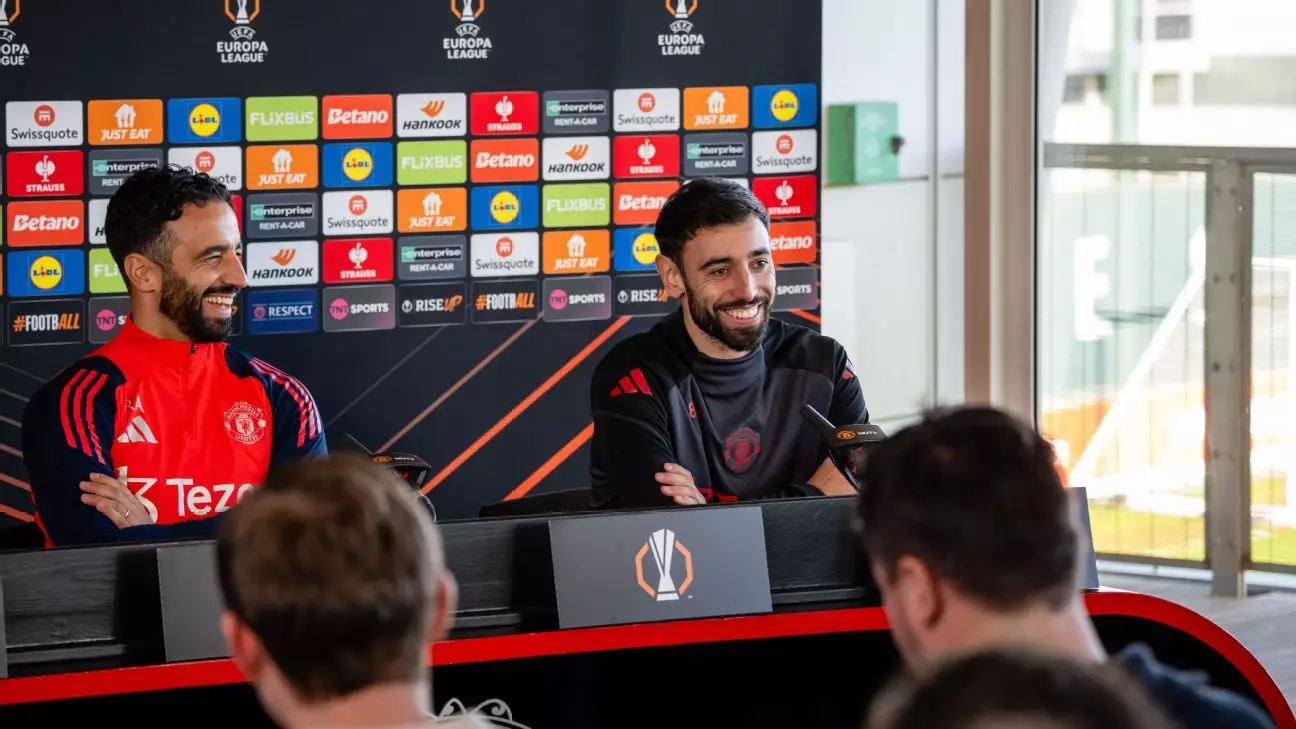As Manchester United grapples with a significant tactical overhaul under newly appointed coach Ruben Amorim, team captain Bruno Fernandes emerges as a pivotal figure in ensuring a smooth transition. Fernandes recognizes his dual role: while he is a player, he must also act as a mentor, guiding his teammates as they familiarize themselves with Amorim’s strategic vision. Following a challenging debut match for Amorim that culminated in a 1-1 draw against Ipswich, the Portuguese midfielder is determined to bridge the gap between the manager’s intentions and on-field execution.
Fernandes emphasized the importance of his awareness during training sessions, stating, “I’m really aware of what we do in training. I try to absorb everything from every position.” This commitment to understanding the new tactical framework reflects not only his leadership qualities but also his desire for collective improvement. He acknowledges that communication can falter in the midst of the noise during matches, making it crucial for him to effectively relay instructions and insights to his teammates as they adapt to unfamiliar formations and roles.
The transition under Amorim is undoubtedly fraught with challenges. The coach himself admitted that the team would need to endure the growing pains associated with adopting his philosophy. Recognizing that suffering is a part of learning, both the players and the coaching staff are aware that immediate results may not reflect the long-term benefits of a more cohesive and well-drilled squad. The upcoming Europa League clash against Bodo/Glimt will provide another opportunity for United to showcase their burgeoning understanding of Amorim’s tactics.
Former manager Erik ten Hag’s departure following a tumultuous start to the season serves as a stark reminder of the high stakes in modern football. Fernandes reflected on the abrupt managerial change, stating, “If you change a manager mid-season, it is because things are not going as you want.” This sentiment echoes the collective accountability that players must uphold as they navigate through adversity.
Fernandes didn’t shy away from discussing the players’ role in the team’s struggles. He pointed out that “everyone has to take the blame,” reinforcing the idea that while a manager often bears the brunt of responsibility, the players themselves must also introspect and evaluate their contributions to the team’s performance. The idea of unity emerges prominently in his narrative; for Manchester United to turn their fortunes around, there must be a concerted effort from every individual, whether they are on the pitch or on the bench.
The journey that lies ahead for Manchester United under Amorim’s stewardship will undoubtedly test the mettle of both players and coaching staff. However, with Fernandes embodying a proactive leadership approach, supporters of the club can cautiously hope for a gradual and successful adaptation to the promising tactical vision that Amorim seeks to instill. In team sports, success is rarely a solo endeavor; it requires collective engagement and a shared commitment to improvement and excellence.

